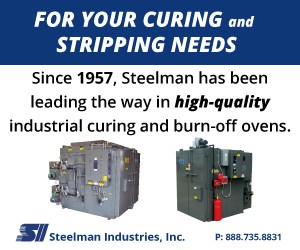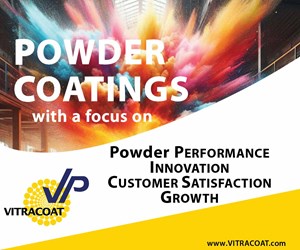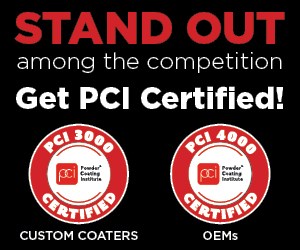Q. I have been hearing about environmentally friendly chemical products for stripping powder from racks and parts. I always thought chemical strippers were hazardous and hard to work with. What do you know about chemical stripping agents? W.E.
A. "Environmentally friendly" is an imprecise statement. All stripping procedures have some environmental baggage attached. Burn-off ovens require after-burners to scrub the exhaust and leave behind an inert ash that has to be handled. Other heated processes use gas and generate by-products that have to be dealt with but there are methods to handle them that are well know and not too expensive to operate.
Historically, chemical stripping meant using methylene chloride or a similar strong solvent that would irritate the skin and eyes, or cause headaches, drowsiness, nausea, dizziness or loss of coordination. Some could cause cancer, reproductive problems, or damage to internal organs. Others could catch fire easily.
In general, these chemicals were not welcome in the workplace if there was a satisfactory alternative. However, there are now many chemical strippers that are reasonably safe in the workplace. Chemicals can strip powder in 15-60 min and leave a metal surface that's free of coating and needs to be rinsed of residual chemistry.
Some of these products are blends of water, surfactants, non-hazardous solvents, activators and inhibitors. Some are alkaline or bi-phase products that require little or no heat and do a good job of coating removal.
I like to use chemical strippers for hard mask fixtures because they leave a very clean, undamaged surface. Many materials are non-flammable, have no ozone-depleting components or HAPs and are non-toxic and non-carcinogenic. The end user needs to make sure that they do not create any serious skin reaction if a worker is exposed. Any chemical stripper will function better with agitation, and they all need filtering to remove coating solids and maintain a cleaner solution.
Of course, all chemical products should be handled carefully and used as directed. Keep in mind that you will need to buy a large volume of product and maintain a tank of it at some cost. Larger racks or parts that need to be stripped will require very large tanks and therefore are not very practical for chemical strippers. Do your homework on the options and you may find that a chemical stripper is a good fit for your operation.
Related Content
-
Powder Coating 4.0: Smarter, Faster, More Efficient and Connected
New tools reduce cost and waste, lower manufacturing footprint of powder coating operations.
-
Powder Coating Overcomes Post Forming
Six Sigma methodology, open communication, and collaboration produce results for leading boat manufacturer.
-
Conveyors and Paint Systems
Choosing the right conveyor system, coating technology, and ancillary equipment.
















